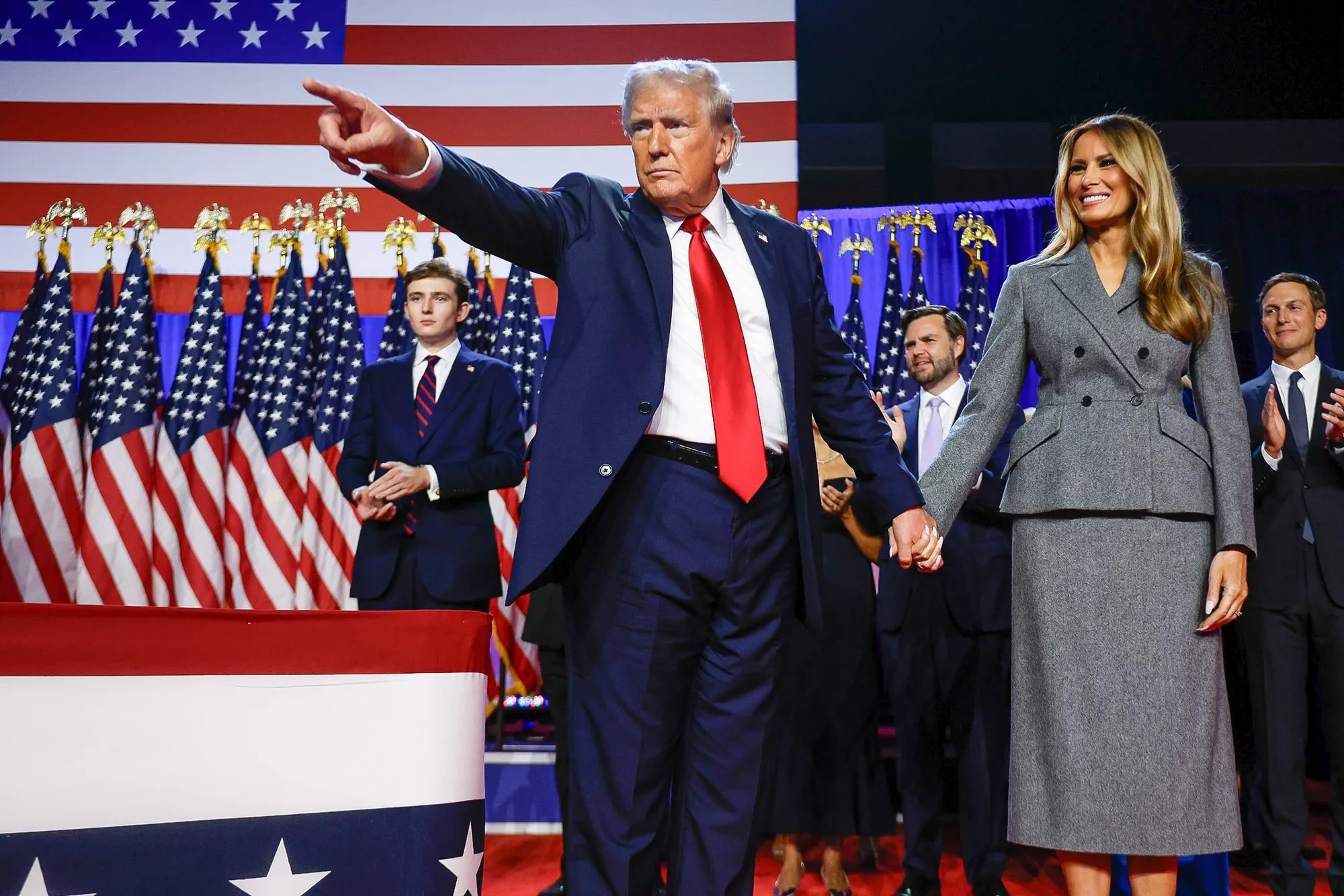Nepal’s Fight Against China’s ‘Debt-Trap Diplomacy’: Will Trump’s Victory Change Everything?

Following his victory in the U.S. presidential election on November 5, 2024, Donald Trump has been elected for a second term, scheduled to begin in January 2025. As the president-elect, Trump has already engaged with key leaders, including Indian Prime Minister Narendra Modi, reflecting a strong potential for a reinforced U.S.-India partnership. However, Trump has not yet initiated direct communication with Chinese President Xi Jinping, suggesting a continuity in the confrontational stance he previously held towards China. This renewed Trump administration is expected to influence U.S.-China, U.S.-India, and U.S.-Nepal relations in distinctive ways, shaped by Trump’s firm positions on China’s growing influence and his strategic interests in the Indo-Pacific region.
U.S.-China Relations: The Return of Hardline Policies
Trump’s previous administration adopted a tough stance on China, marked by trade tariffs, stringent policies on Chinese investments in the U.S., and security restrictions on technology transfers. The anticipated policy for Trump’s upcoming tenure suggests a continuation of this hardline approach, focusing on reducing American economic dependence on China. Trump’s emphasis on decoupling from China is likely to include heightened tariffs, particularly on goods in technology and pharmaceuticals, while encouraging American manufacturing. This focus on economic decoupling aligns with Trump’s “America First” agenda, aiming to secure U.S. interests by reducing reliance on China in global supply chains and enhancing economic autonomy.
Moreover, Trump’s administration may reinstate rigorous security checks on Chinese entities, limiting academic and technological exchanges under the revived China Initiative. This stance will likely aggravate U.S.-China tensions and resonate throughout the region, affecting trade and diplomatic relationships. For Nepal, this antagonistic approach towards China could offer strategic openings to seek U.S. support in countering Chinese influence, especially as Beijing’s aggressive policies, such as Wolf Warrior Diplomacy and Debt-trap Diplomacy, have strained Nepal’s sovereignty and economic independence.
U.S.-India Relations: Strengthening the Indo-Pacific Alliance
Trump’s relationship with Modi has traditionally been strong, and this rapport is expected to deepen in Trump’s second term as the U.S. looks to India as a vital partner in counterbalancing China’s influence in Asia. Trump’s victory call with Modi shortly after his election reinforces the importance he places on U.S.-India relations. This relationship will likely be fortified through enhanced military cooperation and economic partnerships, including expanded defense sales and joint military exercises within the Quad alliance. As Trump seeks to curtail China’s assertiveness, his administration is expected to leverage India as a regional anchor in the Indo-Pacific strategy, promoting security and stability.
However, while military and defense ties are likely to flourish, economic relations may encounter challenges. Trump’s transactional approach has previously led to disagreements over tariffs and market access, and similar issues could arise again, potentially impacting trade negotiations. Despite these economic tensions, the strategic alignment between the U.S. and India could create significant security benefits for Nepal, as a more robust U.S.-India partnership could counterbalance China’s regional dominance.
U.S.-Nepal Relations: Opportunities and Challenges
In Trump’s upcoming tenure, U.S.-Nepal relations will likely remain relatively understated compared to U.S. engagement with larger regional players like India and China. However, Nepal’s struggles with Chinese foreign policy may align with Trump’s anti-China stance, opening potential avenues for U.S. support. Nepal’s dependence on China for economic investments, particularly through China’s Belt and Road Initiative (BRI), has subjected it to various challenges associated with Chinese foreign policy, including:
-
Wolf Warrior Diplomacy: This aggressive diplomatic style has resulted in direct interventions by Chinese diplomats in Nepal’s internal affairs, especially regarding border disputes and political criticisms. Trump’s administration, wary of China’s assertive diplomacy, may view this as an opportunity to offer diplomatic support to Nepal, reinforcing Nepal’s stance on national sovereignty.
-
Debt-trap Diplomacy: The BRI’s high-cost projects in Nepal, such as potential railway links, have raised concerns about debt dependency and loss of sovereignty. Trump’s administration, focused on reducing Chinese economic control, could advocate for alternative financing options or developmental aid to help Nepal avoid over-reliance on Chinese funds. U.S.-backed investment or partnerships could reduce Nepal’s financial vulnerability and give it greater agency in negotiations with China.
-
Sharp Power and Coercive Diplomacy: Chinese influence in Nepal, particularly through cultural institutions and media investments, has aimed to shape local opinion and political stances. This sharp power approach limits Nepal’s independence in crafting its foreign policy. Trump’s administration could counteract this influence by supporting media independence and promoting U.S. cultural and educational exchanges in Nepal, helping to create a balanced informational environment less susceptible to coercive tactics.
-
Neo-imperialism: China’s expansive influence over South Asia has often been likened to neo-imperialism, as Beijing’s involvement in infrastructure and resource projects sometimes grants it significant control over local assets. Trump’s push to challenge China’s global aspirations may encourage the U.S. to engage Nepal in economic partnerships or strategic dialogues, offering a counterweight to Beijing’s control over Nepalese infrastructure.
-
Great Power Competition: Trump’s focus on great power competition in the Indo-Pacific places China as the primary rival, positioning smaller nations like Nepal in a precarious balancing act. A more proactive U.S. stance in Nepal, supporting infrastructure projects or providing alternative financing models, could help Nepal navigate its position between the U.S. and China.
How Trump’s Policies Could Help Nepal Tackle Chinese Influence
Trump’s upcoming administration, with its anticipated hardline stance on China, presents both opportunities and challenges for Nepal. By aligning with U.S. priorities, Nepal could benefit from diplomatic support to push back against Chinese interventions that impinge on its sovereignty. U.S. assistance could also help Nepal diversify its financial options and reduce debt dependence on China. If Trump’s administration introduces alternative development projects, similar to the U.S.-led Indo-Pacific Economic Framework, Nepal could participate and reduce its reliance on Chinese-funded BRI projects.
However, U.S. support would likely come with conditions aligned with American strategic interests, such as promoting democratic values or enhancing security cooperation, which may create new pressures for Nepal. In balancing these conditions, Nepal’s leadership would need to strategically align itself with U.S. objectives without alienating China, its geographic neighbor and significant economic partner.
Conclusion
Donald Trump’s second term in office, starting in January 2025, is likely to reshape U.S. relations in Asia through a mix of strategic alliances, economic decoupling, and assertive diplomacy. Trump’s anticipated hardline policy on China, coupled with his close ties with India, creates a nuanced environment for smaller nations like Nepal. While Trump’s policy on China might align with Nepal’s struggles against Chinese influence, U.S. support would likely be driven by a broader Indo-Pacific strategy rather than direct engagement with Nepal.
Nevertheless, if Nepal effectively navigates this diplomatic landscape, it stands to gain support in mitigating Chinese influence and diversifying its economic partnerships. Trump’s second tenure, marked by renewed “America First” priorities, provides Nepal with an opportunity to secure U.S. backing as it faces complex challenges posed by China’s assertive foreign policy. For Nepal, leveraging this moment could strengthen its autonomy and enable a more balanced approach to its relationships with both global powers.
Donald Trump



![From Kathmandu to the World: How Excel Students Are Winning Big [Admission Open]](https://nepalaaja.com/img/70194/medium/excel-college-info-eng-nep-2342.jpg)
